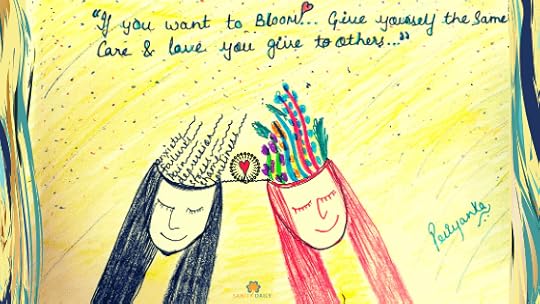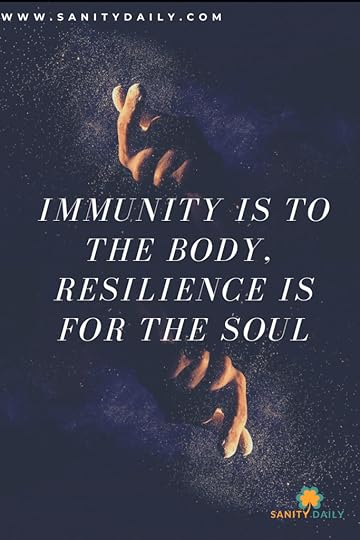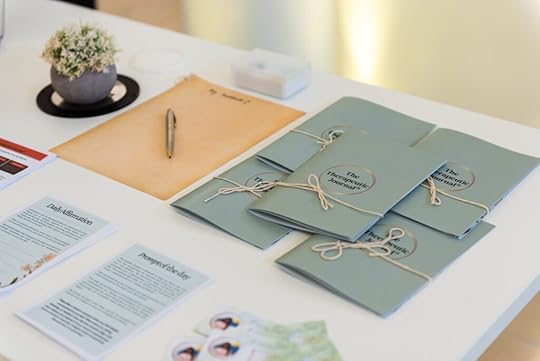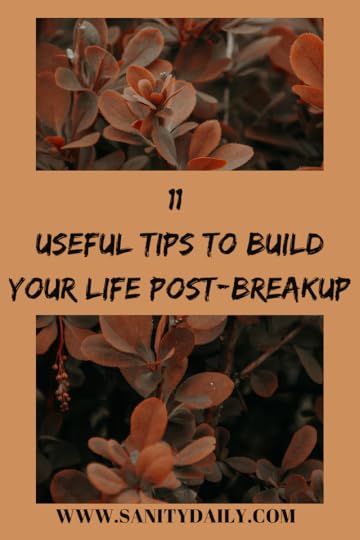Priyanka Nair (Joshi)'s Blog, page 3
January 26, 2025
How Alcohol Addiction Impacts Mental Health in Women
When we explore the realm of alcohol addiction and its effects on women’s mental health, it’s akin to popping open a can of sparkling soda – there are some lively bubbles, but overall, it feels a bit flat. While alcohol may appear to be an appealing companion, underneath that shine lurks the risk of anxiety, depression, and a sprinkle of good old stress.
Women often encounter distinct pressures, and when reaching for the bottle becomes an everyday escape, it may lead to an emotional rollercoaster, oscillating between highs of excitement and lows of despair.
It’s like a celebration in your mind that begins to go off the rails – enjoyable at first, but then you realise you’ve invited the wrong thing.
However, there’s good news! Gaining awareness is the crucial first step to reversing this situation. By recognising how alcohol affects mental health, women can start to regain their spark and surround themselves with the right influences – you know, the supportive friends who uplift rather than drag them down.
The Common Signs of Alcohol Addiction Impacting the Mental Health of WomanOpening up about emotions and seeking help is not only wise; it can completely transform the situation! The first step to getting the help you need is to understand how alcohol addiction could be impacting your mental health. So, let’s look at some common signs to look out for.
After an especially demanding day, sometimes life prompts us to reach for a glass of wine or two. However, alcohol addiction brings the situation into sharper focus, from fluctuations in mood and heightened anxiety to that nagging feeling of depression.
7 Ways Alcohol Addiction impacts women’s mental healthLet’s explore how this delicate issue can significantly affect a woman’s mental well-being by delving further into what these common signs are:
1) Heightened Anxiety
In our rapidly moving world, the connection between alcohol addiction and heightened anxiety has emerged as an important subject, particularly regarding women’s mental health.
Numerous women find themselves trapped in a vicious cycle where drinking serves as a method of coping with stress, only for their anxiety levels to escalate once the effects fade. It’s akin to balancing on a tightrope: the moment you lean in one direction, it drags you further from equilibrium.
This continuous struggle can profoundly affect self-worth and emotional stability, leading to a sense of isolation.
2) Mood Swings
Alcohol dependence can lead to an emotional rollercoaster; in one moment, there may be laughter and happiness, while just a moment later, feelings of sadness and irritability can emerge, causing bewildering changes for both those struggling with addiction and their loved ones. It’s important to understand that these emotional fluctuations are often linked to the physiological impact of alcohol on the brain due to addiction.
As awareness increases, it is crucial to dismantle the stigma surrounding these mood changes, fostering more supportive dialogues and healthier ways to cope.
3) Depression
Alcohol dependence frequently acts as a gateway into deep depression, creating a cycle that is both prevalent and challenging to escape. Many individuals turn to alcohol for relaxation, only to discover that it can intensify feelings of sadness and loneliness.
Numerous women might face ongoing sadness that persists even during sobriety, making ordinary tasks seem overwhelming. Identifying this pattern early can be vital for obtaining assistance and addressing both mental health and addiction challenges.
4) Diminished Self-Worth
Many people find themselves trapped in a cycle where every drink seems like a carefree escape, yet it gradually erodes their confidence and self-worth.
It’s easy to overlook your true value while getting swept away by the highs and lows of intoxication. The enjoyment of life can quickly transform into a struggle with vague boundaries and broken self-images. Nevertheless, recognising this challenge paves the way to reclaiming a sense of identity, demonstrating that restoring self-worth can be just as thrilling as the initial excitement!
5) Cognitive Impairment
Alcohol addiction can deceive the brain in ways that are far from pleasant! Cognitive impairment is one of the insidious side effects that often goes unnoticed until it becomes problematic. Picture trying to navigate a maze while wearing foggy glasses – that’s what navigating life feels like when your cognitive abilities are hindered.
Memory issues and poor decision-making can disrupt your daily routine. For instance, you might struggle to remember appointments or follow conversations, which can interfere with your everyday activities. This can create a frustrating cycle, where the anxiety from cognitive challenges leads to increased drinking as a means of coping.
6) Social Withdrawal
It’s well-known that alcohol dependency can lead to a social retreat, particularly for women who may feel their challenges are ignored. The need to maintain appearances often results in feelings of isolation, which exacerbates the situation.
Friends may not fully grasp what they are experiencing, and those solitary nights can spiral into a destructive cycle. It is crucial to create a nurturing community, whether online or face-to-face, where women can connect and exchange their stories. It’s important to remember that asking for support is perfectly fine; you are not alone in this process.
By recognising these indicators, we can take proactive measures to tackle alcohol dependency and emphasise mental well-being. Seeking assistance and support is essential, as recovery involves more than just stopping alcohol use—it’s also about rediscovering joy and connection in life.
7) Treatment for addicted women
There are some unique challenges for women when they are looking for treatment for addiction and mental health issues.
Both genders face stigma when they are seeking help for addiction; men are viewed as more of a threatening presence, and women as needing protection. Women are, however, judged more harshly for becoming addicted and the behaviours that come along with substance abuse.
Women may feel safer and better understood in rehab, specifically for female-identifying people.
It can help to stay closer to home, so finding rehabilitation locations nearby will make a big difference to the comfort and family support of women in rehab.
January 21, 2025
21 Freaking Ways To Beat That Self-Doubt Monster
Beating self-doubt as a woman is as important as you breathe without even thinking about it. Because it is very easy to judge and doubt your own efforts when no one is clapping for you.
Self-doubt and procrastination are not only time thieves but energy killers too. They ruin the beauty of your life and destroy your goals. When you doubt your own feelings, emotions, efforts, commitment, dedication, and determination, you lose control of your life.
In this blog, I am to going talk about the ways I overcame self-doubt as a woman and stopped for nothing.
Beating Self-doubt As A WomanI know you must be wondering ok how do we do that, lady? First of all, we need to recognize the problems we have with ourselves, we need to accept them and fix them. Honestly speaking, no one is born successful and all the successful people who talk about it have their own struggles, own journey and they have literally carved their own path.
All we need to do is search for ours. We usually focus on others, we are on the constant look-out for shortcuts, we make excuses, we want everything perfect and very soon. But who talks about the struggles they are ready to face, the efforts they are ready to put in the process? Let’s talk about that first.
Gear up women, as I share few doses of sanity which kept me intact in the toughest spots of life and kept me moving, even though I felt tired, numb, and was ready to succumb, oh the occasional poet in me is here  I didn’t stop.
I didn’t stop.

Ok, what do you think are the areas of self-doubt as a woman? While you ask this question to yourself try to list all the questions and answer them. Beating self-doubt as a woman is only possible when you accept them and work on them, one by one.
Self-doubt syndrome or self-imposter syndrome in women is very common and somehow natural due to various external pressure like meeting everybody’s expectations. Taking care of their family and her relationship with her in-laws.
Here are a few ways you can re-define yourself and re-gain your lost balance.
1.) Refine your company2.) Stay away from toxic people3.) Prioritize 4.) Define your goals5.) Set your vision board6.) Stop making excuses7.) Trust your plans8.) Learn to say NO9.) Do not compare with others10.) Maintain a journal11.) Upgrade your skills12.) Celebrate all your success13.) Evaluate your progress14.) Do not listen to others15.) Do not follow the noise16.) Raise your self-awareness17.) Be mindful18.) Stop seeking validation19.) Practice gratitude20.) Be kind to self 21.) Allow yourself to make mistakes1.) Refine your company
You might be having a lot of friends, you might be the most social person, but how many of them help you and be there for you when you need it? Believe in quality over quantity, stick to them who bring out the best in you.
2.) Stay away from toxic people
They could be anywhere, as a woman the most toxic person in our life could be that narcissistic mother in law, you will leave no chance to put you in a self-doubt zone or that critical husband who keeps on finding faults in you. Define strict boundaries with them and don’t let their negativity and insecurity enter you.
3.) Prioritize
For beating self-doubt as a woman we need to prioritize. We accumulate a lot of things in our life, a lot of relations, a lot of sentiments and they stop us from moving ahead as we attach a lot of meaning to each and everything. De-clutter and prioritize everything you have in your life.
4.) Define your goals
Set realistic goals, it could be anything like setting up a kitchen garden or a mini library in your house or starting up with your boutique or bakery shop. A goal is a goal, and always set short-term goals which require a small time period, set a deadline, and monitor them.
5.) Set your vision board
It doesn’t matter if you are a homemaker or a working woman, we all need to set a vision board for ourselves. I don’t think there is a single woman who doesn’t dream, who doesn’t want to aspire and do something in her life. Create a vision board and bring it on paper, ask yourself, where do you see yourself in the coming months or years, and note it down.
6.) Stop making excuses
90% of failures come to those who make an excuse for everything they don’t do. Making an excuse will lead you to nowhere. We all get an equal opportunity with 24 hours in our hands every single day, now it is up to us how we use it to our advantage.
7.) Trust your plans
For beating self-doubt as a woman, you need to trust our plans. You need to believe in yourself even if no one believes in you and keep moving in the direction where you see your path.
8.) Learn to say NO
This is the biggest lesson I have learned in my life, I have learned to say no to situations and people who do not value others’ time and make you feel worthless. Just because you are easily accessible to them, they take you for granted, don’t let that happen to you.
9.) Do not compare with others
Your chapter 20 cannot be my chapter 10 and my chapter 50 can not be your chapter 30, sounds complicated? It becomes exactly the same when you compare your life with others.
10.) Maintain a Daily journal
A daily journal could be your venting out point, your savior, and your friend. It could help you track your mood and refine it. When in doubt sip a coffee and sit with your journals, pen down your thoughts, and release all the doubts you are holding.

11.) Upgrade your skills
The best way for beating self-doubt as a woman is to keep yourself updated. You feel lost when you don’t know the answers, you don’t know what to talk about and you start doubting yourself, blaming yourself, instead replace the doubt with an upgrade.
12.) Celebrate all your success
In aspiring higher goals, we forget to celebrate small success, we forget to be grateful for what we have been able to achieve and that’s where we lack. Please learn to celebrate all the little success you achieve while you move ahead in life.
13.) Evaluate your progress
Take out time to evaluate your progress, how your cooking is better than it was before, how you have been able to write better than before, it will bring a wide smile of satisfaction to your face.
14.) Do not listen to others
Please save yourself some sanity by not listening to others. Beating self-doubt as a woman is possible when you stop seeing yourself from other’s viewpoints. Do not listen to what they have to say when what they say disturbs you.
15.) Do not follow the noise
There lies a lot of noise-makers, who follow the rat-race and make noise for everything they do. When you will follow them you will feel lost and you will lose the track of your progress as it will look pale in the brightness of their pretentious world.
16.) Raise your self-awareness
Bring your self-awareness. Self-awareness helps you see clearly and objectively through reflection and introspection. By being aware of your thought process and your state you claim your belief in self.
17.) Be mindful
Be in the moment and go with the flow, that is being mindful. When we find reasons for everything and doubt ourselves, we become anxious, and when we choose to see things as it is we choose to stay mindful and not mind full.
18.) Stop seeking validation
It is natural that when we doubt ourselves we tend to seek validation from others, we want others to say that yes you are doing great, you are going well. But sometimes the only validation we need is of our firm belief t carry on and stop for something.
19.) Practice gratitude
When I started practicing gratitude my life started to change, I started thinking about everything and everyone who supported me, who helped me, and was there for me, it helped me to feel content. The more I practice gratitude and be grateful for the things I have, I feel satisfied.
20.) Be kind to self
You can be kind to everyone around you, so why can’t you be kind to yourself? You pressurize yourself, your body starts to drain, and feel tired but you keep on pushing yourself further, drag yourself just to finish what you started. Be kind to yourself, give yourself some break in between.
21.) Allow yourself to make mistakes
Mistakes are proof that at least you are doing something. You learn a lot from your mistakes and as you move ahead with any plan of yours you will always make reference to your past-mistakes, so allow yourself to commit some.
So with these 21 ways for beating self-doubt as a woman, I am sure you will relate to a few and it will help you to not fall in the self-doubt zone. All this works for me and has helped me to follow my goals, the firm belief and your will-power are all you need to keep yourself going. There would be occasions on which you will feel unsatisfied and might doubt your abilities and efforts, which is alright, take your time, explore all the possibilities and work on it.
Take charge of your life and be awesome. Lots of love and gratitude.
January 12, 2025
10 Reasons To Be Ok For Being Imperfect as a Woman
How to be ok for being imperfect and accept ourselves? Why is there a need to be perfect in everything we do? Why are we judged on our ability to do things perfectly?
The more we accept that being perfect is ok the more this world becomes an easy place to survive. Every woman in the world is beautifully imperfect and as we accept ourselves the better our mental health becomes.
In this blog, let us talk about how we should accept ourselves with the little limitations we have and yet live an imperfectly happy life.
How to be ok for being imperfect as a woman?The ones who know me, call me an organized and neat freak, I like everything in order, maybe that is my definition of perfectionism in doing things and keeping things in order. The first thing I do after I wake up is, I prepare a daily to-do list and I want to accomplish as many of them. Sometimes when I lose track of things and fail to accomplish them, the world still survives, no one gives a damn about my to-do list and I wonder is it ok to be imperfect at times?
Is it ok to slow down and take a breather? Is it ok to do things at your own pace and let things fall in place gradually? I think the answer lies in how much you are willing to drop the level of your perfectionism mantra.
10 Reasons To Be Ok For Being Imperfect as a WomanI have accepted the fact that being perfect in everything we do is not plausible. If perfection was the aim of life then God would have made us that way and would not have given us this life full of struggle, sadness, happiness, sorrow, grief, failures, and joy. Perfection could be constant yet temporary, we have to continuously thrive for it, maybe that’s the beauty of life.
So if you want to find the purpose of your life and take charge of it, here are 10 reasons on how to be ok for being imperfect:
1.) It helps you understand your limitations2.) It helps you define deadlines3.) It helps you take action4.) It helps you understand yourself5.) It helps you to stay real6.) It pushes you to thrive7.) It helps you stay in the game8.) It helps you to be mindful9.) It helps you ignore little imperfections around you10.) It helps you to be you1.) It helps you understand your limitations
We don’t want to talk about it, right? Talking about our limitations makes us feel week and vulnerable. Why is it so hard to accept our weaknesses and work on them, when we go behind fixing things in order to look perfect, present perfect things and display a perfect house, we forget that we have our limitations too.
We stretch ourselves and we totally ignore the bandwidth we are incorporated with.
2.) It helps you define deadlines
When you know your limitations, you set realistic goals and you set a realistic timeline to finish them. A woman’s job is not easy we all know that but when go with the bandwagon of that lady with multiple hands portraying a perfect picture of a multitasking woman we often fall for it.
That should certainly not your goal, your daily goals revolve around your lifestyle, your family, and your ability to cope up with the number of tasks in your hands.
3.) It helps you take action
How to be ok for being imperfect? By taking actionable steps and learning to say no. In the process of pleasing others and not able to say no we take a lot of tasks in her hands and then we feel pressured and stressed.
I can understand while living with in-laws you cannot say anything, but you can at least define your own pace to complete all the daily chores and tasks in hand.
4.) It helps you understand yourself
Striving for constant perfection leads to lower self-esteem. You will always have something to complain about and there would always flaws around you which you would want to see perfect.
But the reality is that we all are a work in progress, we make mistakes, we learn from them, we make other mistakes, sometimes we learn nothing and we still move on. There would be always a flaw that needs to fix and worked upon but take this as a process and you will be amazed to see how it is helping to understand yourself.
5.) It helps you to stay real
Setting realistic goals and understanding your limitations helps you to stay real and true to yourself. All you need is to pause and reflect. We all have happy and sad days, positive and negative days, but take them as a part of your life. Do not stress and let the pressure of imperfections go.
6.) It pushes you to thrive
The day we feel we have become perfect in a skill, do we stop studying it further? The day we feel we make the best coffee? Do we stop experimenting with different flavors and different ways to make coffee? If yes, then so many varieties would no have been added to the list of coffee every day.
The day we stop growing, we cease to exist, what remains to learn, and when we don’t learn new things, how will we grow more?
7.) It helps you stay in the game
When we accept those little imperfections and embrace them as our own we bring awareness to ourselves and stay in this game called life. We see more room for growth and learning.
We stop comparing ourselves to others and we focus on what we can do or to make our life more meaningful devoid of any pressure and stress to thrive for perfection.
8.) It helps you to be mindful
How to be ok for being imperfect? By being mindful. When we see ourselves as we are and when we soak into the moment, we go with the flow. We are not judging ourselves, we are not pressurizing ourselves, we are simply being aware of what we can do and what we cannot do.
9.) It helps you ignore little imperfections around you
When you choose to embrace your imperfections it allows you to see and ignore all the little imperfections around you. You learn to receive and manifest your path towards a stress-free environment.
10.) It helps you to be you
Many are bought up with higher expectations and standards, which makes digestion imperfection a little difficult. But when we understand that consistent perfection is impossible and it is human nature to make mistakes, we allow ourselves to be perfectly imperfect.
This is the only perfect we need to thrive for, being imperfectly perfect, making mistakes, learning from them, forgiving ourselves for making mistakes. Forgiving self for not being able to do things as per other’s expectations and understand that it’s human to be imperfect. It’s human to make mistakes. People who seek continuous perfection in things feel pride and happiness when things go their way but in the very same way, they get demoralized soon when things go wrong.
So, my dear friends, perfectionism is not a bad thing to thrive for, but not accepting imperfection could possibly put you in a tough spot. Embrace your life and accept that it is ok being imperfect and happy.
Lots of love and gratitude
Introducing The Therapeutic Journal – A Guided Self-Care Journal for Mothers by a Mother
After months of dedicated work and creative effort, this mindfulness-focused journal is ready to transform the way you manage your mental health and well-being. This journal is specifically crafted for mothers a perfect tool to help you feel grounded, reduce overwhelm, and create clarity in your daily life.
Why The Therapeutic Journal?The Therapeutic Journal is here to remind you to pause, breathe, and reconnect with yourself. It combines the power of mindfulness practices with NLP-based exercises, giving you structured yet flexible prompts to explore your thoughts, release mental clutter, and focus on what truly matters.
Key Features of The Therapeutic JournalGuided prompts to inspire reflection and growth.Mindfulness exercises to centre your thoughts and emotions.Reflective spaces to jot down your innermost feelings.Undated and easy-to-use pages, perfect for your unique schedule.A heartfelt gift option for yourself or another amazing mom who deserves recognition and care. Introducing The Therapeutic Journal - A Guided Self-Care Journal for Mothers by a Mother 1
Introducing The Therapeutic Journal - A Guided Self-Care Journal for Mothers by a Mother 1How is this Journal beneficial for mothers?
As a mother, you juggle roles and responsibilities and often have little time for yourself. The Therapeutic Journal – a guided self-care journal offers you a much-needed me time to reconnect with yourself amidst the hustle of daily life. This is the first edition of The Therapeutic Journal and is specially designed for the well-being of mothers. It is your safe space to express your thoughts, process your feelings, and find clarity and purpose in your journey.
From as little as 10 minutes a day, the therapeutic journal will allow you to reflect and reconnect with your inner self. As a mother, you give so much of yourself to others. This is your time to give to you.
Where Can You Buy It?You can now order The Therapeutic Journal online through the following links:
Amazon IndiaAmazon UKAmazon USSanity Daily ShopJanuary 9, 2025
7 Resilience Building Tips Every Woman Should Follow
How to build resilience as a woman and take charge of your life. Resilience in simple terms is bouncing back from the difficult experiences of life. We all need a strong coping mechanism against the daily intricacies of life. Women often feel restless and helpless under various circumstances. Sometimes quick-fixes solutions just don’t work, we need to build a strong resilience that can help us to think clearly in any situation.
In this blog, I will share a few things I learned about building resilience in women.

It is said that when life throws lemons, make lemonade. But does anyone tell you the exact recipe to make that lemonade? That’s where resilience helps us cope with whatever life will throw at us because trust me it can throw a lot.
How to build resilience as a woman? By making them aware of what they already have, resilience is a quality we all possess but most of the time we need a push to break the concept of limitations and be more aware of ourselves. We as married women can take charge of our lives by being resilient.
We as single moms can stay positive while raising our child independently. We just need to stay away from those voices which make us feel inferior, make us doubt ourselves, make us feel worthless.
Importance of building resilienceWhy am I talking about building resilience in women? Why is it so important to take command over your life? With the growing mental illness in our society and very little awareness about nurturing mental health right from our early childhood. Many women suffer in silence and they always look out for support.
Resilience is a tool that can help us get through tough times. It is an ongoing journey to build mental toughness and discover the courage to withstand things you believe in. The key is to identify what works for you and when you need to apply it to save yourself some sanity and gain strength when times call.
Five reasons it is important for a woman to be resilientTo strike an emotional balance To have a sense of purpose To not lose your identity as an individualTo be able to bounce back from difficult situationsTo be life-ready7 Resilience-Building Tips Every Woman Should FollowNow when you know the importance of building resilience in women, let us move on to know HOW? My own set of resilience has come from my personal experiences and I realized I need to have grit and courage to move on, carry on, and just go on with life. It also helped me to define certain boundaries.
As I already said that life has a lot to throw and we sometimes fail to take it, which is natural so do not stress or doubt your capability, but by bringing few practical steps into our daily practice we can surely help ourselves. So, how to build resilience as a woman? 7 tips here:
1.) Find a purpose2.) Mindfulness3.) Self-awareness4.) Self-compassion5.) Be self-reliant6.) Gratitude7.) Daily Journal

1.) Find a purpose
How to build resilience as a woman? Find a purpose, a sense of purpose helps you add value to your journey called life. When you have a sense of purpose for you to wake up daily, you automatically derive strength and motivation to keep going. It could be your passion or your profession which can add purpose to your life, once you identify it, stick to it.
Psychologists have found repeatedly that people with a strong sense of purpose experience more resilience, a stronger sense of well-being, and even better cognitive functioning.
2.) Mindfulness
Mindfulness is a psychological and spiritual practice and a basic human ability to bring awareness to itself. Be in the moment and focus on what is going inside the mind and not stress over things that you cannot control.
When you practice mindfulness, it helps you to push away those negative thoughts that awaken our inner demons and push us towards the deep well of procrastination, overthinking, fear, and anxiety rather helps us build resilience to overcome them.
3.) Self-awareness
How to build resilience as a woman? By being aware of ourselves. Knowing our feelings, owning them. With self-awareness, we label our emotions accurately and are able to get to the root cause of our problems. Our emotions are usually based on our reactions and the more we connect to ourselves, know ourselves, act accordingly, and take more accurate steps.
4.) Self-compassion
We all face challenges in our life but not all challenges are meant to destroy us. Some challenges are meaningful and help us discover our true potential to overcome them. But in the process we should never be harsh on ourselves, how we respond to our own stress and challenges is also important, we should allow ourselves to make mistakes, to learn from them, and when we are compassionate we make room for more acceptance.

5.) Be self-reliant
How to build resilience as a woman? By being self-reliant. Being able to be resourceful and self-reliant are key traits of resilient people. Being self-reliant means that you are able to follow your gut process, take decisions based on your experiences, and try to find solutions to your problems on your own.
6.) Gratitude
Gratitude is one strong key point to build resilience in women. As a woman, I know how I look out for a motive to start a day and look ahead with a bright mindset to carry on. The study reveals that making a habit of practicing gratitude helps in focusing on and appreciating the positive aspects of life on resilience and well-being. Practicing gratitude changed my perception towards life and it has helped me build very strong resilience which I carry throughout my day.
7.) Daily Journal
Some people prefer writing down how they feel, to gauge their emotional journey. I call it mindful journaling, a process when you are in the moment with your thoughts and going with the flow. While you pen down all your emotions it clear your conscience and you feel more confident about yourself. It also helps you to track your mood and understand yourself better.
To conclude, I would say that life will never be easy and also nothing is permanent, the only thing I have learned is that change is the only constant thing in our lives. All we need to do is be ready with some coping mechanisms to deal with all the uncertain and unwarranted situations. What else could be more helpful than being resilient and being life-ready? It will not only help you develop your confidence in your decision-making ability to solve problems but also help you trust your instincts.
Lots of love and gratitude
January 6, 2025
8 Signs You Have Been Ignoring Your Mental Health: Reminders We all Need
When was the last time someone had to remind you to take care of the things you love to do? Or caring about your hands, your face, and your skin? Do you happily do things that reflect your outer persona? Right?
But what about that inner person you have set on auto-pilot and have left to hustle/struggle and over-stretch forgetting about the consequences it could result in the long term?
We all have been harsh on ourselves yet we are conditioned in a way that if we think about ourselves we are consciously made to feel guilty about it. This blog is a gentle reminder for all those who have been ignoring their mental health. Stating a few signs you have been ignoring your mental health.

According to the World Health Organization (WHO), mental health disorders are among the most common reasons for suicide in the world. Identifying the early signs and taking the necessary steps can alter your quality of life.
September is the suicide prevention month and it is indeed an ongoing process of raising awareness among all of us, to be more sensitive and empathetic with people who are going through a rough patch of life.
Mental illness is a condition that can be treated with timely intervention, any mental illness doesn’t define you but the labels as a product of societal shame and stigmatized belief systems do.
We often ignore our inner self we indulge in negative self-talk, and criticize the inner self for being weak or vulnerable. Then the adversities of life hit harder and we just fail to identify the root cause and ways to deal with them. The first step is acceptance followed by acknowledgment and working on the problem.
8 Gentle reminders if you are ignoring your mental healthHere are a few reminders which will help you to pause and reflect in your inner state, take a moment to work with your inner self, and connect with it. Listen to what your body says, check whether your mind, body, and soul are in harmony, and if you sense a little disconnection, you need to re-wire it.
1.) Having trouble focusing
One of the basic signs you have been ignoring your mental health is when you find it difficult to focus on things that matter. What do you think will happen when you are clouded with thoughts and those thoughts will occupy a deeper sense of being in your mind to the extent that you will start losing focus on the things that matter?
Does it ring a bell yet? For example, I have been writing day in and out, overstretching myself and now my pen is out of ink and yet I am scribbling with it, scratching it, will it help me? Or will it frustrate me even more? That’s what we often do with ourselves. Our ability to focus on things around us depends upon our state of mind, the more healthy and balanced state of mind we are in, the more focused and productive we feel. We always need a re-fill and pay attention to the activities and emotions that derail our focus and avoid them.
2.) Feeling indifferent at work
Have you heard about job apathy? It is when you lose interest in your work, you feel monotonous, you go through daily motions at work, do only the minimum required to complete tasks, and remain detached from your workplace.
You feel indifferent, you feel overwhelmed. Why? Maybe you don’t love what you do or you are too stressed to work. Reasons could be many, but you have to again notice your behavior patterns here and take charge of it. Otherwise, you will continue to stay on autopilot and it will not help you to internalize the growth and development you are supposed to get from your work.
3.) Losing interest in things you use to love
Another one of the crucial signs you have been ignoring your mental health to take notice of. When was the last time you painted something or baked a cake? Different people love different things and there are so many things they love to do, but there comes a time when we feel so saturated and aloof that we lose interest in doing things we used to love.
My best friend told me that she doesn’t enjoy playing guitar anymore, although she wants to. Another one said she has stopped writing because everything feels too much. Why? Do we check on ourselves as much as we check our social media?
Do we measure the amount of stress we accumulate in our minds that we are running out of space for the things that use to spark joy in our life? What is wrong with me? Ask this question to yourself more often, please.
4.) Withdrawing from people you loved
Since I am surrounded by the writer’s community, I often hear people saying that when they want to tell something no one listens but when they write the same thing as a quote and post it on the wall, people clap and say good things about it, forgetting the fact that someone is trying to make a point.
We start withdrawing when we see some lost connections, where we don’t feel welcomed and the world looks like an unpleasant place to enjoy. We start applying a filter, we declutter and get away with people, but does it help? When we generalize the whole bunch of friends just because of a few ones who never cared?
There is someone who always cares, focus on that one. We want everyone and in this way, we lose the ones who actually care.
5.) Difficulty in falling asleep
Very ignored but very important signs you have been ignoring your mental health. When you find it difficult to fall asleep and wake up, this pattern troubles a person a lot.
Our quality of sleep defines our productivity of the day, our mind frame, and our mood. If we continue to sacrifice our sleepover recurring thoughts we might face severe health issues in the long run. Nowadays even just to kill boredom and loneliness, people sacrifice their sleep and over the period they develop this habit of difficulty in falling asleep.
Please take note here that sleep is as important as food and water for the body, so please get adequate sleep.
6.) Isolation feels good
When you withdraw from your social circle and feel unwanted, when you think that no one is understanding how you feel and what you want to convey, you somehow prefer isolation. Because in your isolation you are own your own, with your own thoughts.
You feel less judged and biased when you have nothing and no one to explain. But this habit, in the long run, might turn out to be very awkward and difficult for you. Many people develop social anxiety which puts them in a tough spot in public gatherings and family events.
So do not shut yourself down, but yes draw healthy boundaries to preserve your sanity.
7.) Increased irritability
Were you always irritable? Short-tempered and angry? Just like HULK? As he says, I am always ANGRY? just kidding. No, right? We all have mood swings, and our mood is often controlled by external factors like people and the situation around us.
Just in case you feel that you are too overwhelmed and get irritated easily even on small topics, take note and introspect. If this is not your usual self, please try to focus on yourself and take charge of your thought pattern. Be conscious about your response, be mindful of your actions.
8.) Changes in appetite
One of the very common signs you have been ignoring your mental health if you are not noticing the changes in your appetite. We eat less, we eat in a hurry or we totally skip a meal, still, we stretch and move ahead.
Excessive stress triggers emotional and psychological changes in our bodies. These changes often affect the stomach and digestive tract and can make you lose your appetite and some people also engage in excessive eating. If you notice such a pattern then please take care. Identify your stressors and try to stick to an eating schedule.
To conclude, I would say that what I presented as the signs you have been ignoring your mental health, are also very basic most of us already know, but fail to reflect upon. Take these 8 reminders seriously and think about them. Introspecta and evaluate your mental health on a scale of 1 to 10 and make a note of it. Work on it if you feel it falls below 8. Take care. Rise up.
December 31, 2024
Understanding Attachment Styles & How They Impact Our Relationships
Relationships often serve as mirrors, reflecting our deepest insecurities, desires, and emotional patterns. At the heart of these patterns lies something fundamental yet often overlooked: our attachment style. Understanding your attachment style can provide insights into your behaviour, emotional needs, and challenges in forming meaningful connections.
What Are Attachment Styles?Attachment styles are psychological models that describe how individuals bond with others, particularly in close relationships. Originating from attachment theory developed by John Bowlby and later expanded by Mary Ainsworth, these styles stem from early interactions with primary caregivers and influence our adult relationships.
There are four main attachment styles:Secure Attachment
Characteristics: Comfortable with intimacy and autonomy, able to maintain balanced relationships.Origins: Formed through consistent and responsive caregiving in childhood.Impact on Relationships: Secure individuals are emotionally available, communicative, and trust their partners.Anxious Attachment
Characteristics: Fear of abandonment, heightened emotional needs, and craving for constant reassurance.Origins: Often develops when caregivers are inconsistent in their responses.Impact on Relationships: This can lead to dependency, overthinking, and conflict in relationships due to fear of losing the partner.Avoidant Attachment
Characteristics: Tendency to prioritize independence, difficulty with intimacy, and emotional distancing.Origins: Arises from emotionally unavailable or dismissive caregivers.Impact on Relationships: Avoidant individuals may struggle to open up or commit, leading to feelings of disconnection in relationships.Disorganised Attachment
Characteristics: A mix of anxious and avoidant traits, fear of intimacy, and difficulty trusting others.Origins: Often linked to trauma, neglect, or chaotic caregiving environments.Impact on Relationships: This can result in unpredictable behaviour, as individuals oscillate between craving closeness and fearing it.How Attachment Styles Affect RelationshipsCommunication and Conflict
Securely attached individuals tend to handle disagreements constructively.Anxiously attached individuals may resort to emotional outbursts or clinginess during conflicts.Avoidant types might withdraw or shut down, avoiding confrontation.Emotional Intimacy
Secure attachment fosters deep emotional connection and vulnerability.Insecure attachments (anxious or avoidant) often create barriers, making emotional intimacy challenging.Relationship Longevity
Research suggests that secure attachment significantly increases relationship satisfaction and longevity.Insecure attachment styles may lead to recurring patterns of instability or breakups.Origins of Attachment StylesAttachment styles are deeply rooted in our childhood experiences, shaped by the caregiving environment we grew up in:
Consistent care builds a sense of trust and security.Inconsistent or neglectful care leads to uncertainty about whether emotional needs will be met.Trauma or abuse can result in disorganized attachment, leaving lasting emotional scars.Can You Change Your Attachment Style?The good news is that attachment styles are not set in stone. While they originate in childhood, they can evolve through self-awareness and intentional effort:
Therapy: Working with a therapist can help unpack the roots of insecure attachment and build healthier relational patterns.Mindfulness: Being aware of your triggers and emotional responses can help manage attachment-based reactions.Healthy Relationships: Secure relationships can foster a sense of safety and trust, encouraging growth and change.Understanding your attachment style is a powerful step toward building healthier relationships and improving self-awareness. Your attachment style is a reflection of your past but doesn’t have to define your future. By embracing your style you can build stronger and more fulfilling connections.
December 14, 2024
A Dream, A Vision, and a Journal – The Story Behind The Therapeutic Journal
As I sit here, reflecting on the last few months, it’s hard to believe how far I have come. It’s a feeling of exhaustion, pride, and most of all, exhilaration. For the past four months, I have been working tirelessly to bring a dream to life “The Therapeutic Journal” an extension of my mental health blog, Sanity Daily. I have poured my heart and soul into this project, one that has taken shape against the backdrop of a full-time job, raising a beautiful child, and managing a household all by myself. Yet, despite all the responsibilities, it’s been a journey that has reaffirmed the power of persistence, belief, and the vision that kept me going.
From Idea to Execution: A Solo Entrepreneur’s JourneyWhat does it mean to be a solopreneur? Trust me I realised it when I was doing this project all by myself and the word SOLO kept hitting me. The early mornings, late nights, the self-doubt, the creativity and design, the writing, the development, and all of the small pieces coming together to form a cohesive whole. And it was all done by me. No big team. No fancy assistants. Just me, my laptop, and an unwavering vision with my little one by my side.
Creating The Therapeutic Journal was an idea that sprouted a while ago, under the guidance of my award-winning and best mentors Brian McNicoll, Christopher DJ Smyth and Catherine Ward. It was when I participated in the Elevator Academic Accelerator program to learn the intricacies of setting up a business. I had my Blog and podcast which are doing brilliantly but they were not formed on the foundation of a business model and I struggled to change its essence. I decided to use all my learning, experience and credibility to offer something meaningful to women around me.
I wanted to design a journal as a form of self-help tool for mothers that was more than just pages for writing – it needed to be a wholesome guided experience. A space for mums to release stress, to take a pause, to connect with themselves, and to nurture their mental health.
But how does one begin? The dream was clear, but the reality of turning that dream into something tangible was daunting, trust me I sat on the idea and almost thought of not doing it. But I knew that this was a journey I had to put my step forward, even if it meant carving out time from every corner of my day.
 What kept me going?
What kept me going?A key motivator through this entire journey has been the vision. The vision of mothers everywhere sitting down with their journals, breathing a sigh of relief as they reconnect with themselves, away from the daily pressures of life. I closed my eyes countless times and visualised this moment. I could see it, I could feel it, and most importantly, I could see how this simple practice of using a mindful journal would transform the lives of mothers who too often put themselves last on the list of priorities.
The vision was so clear in my mind that it became my fuel. It didn’t matter how tired I was or how busy my day was it was the thought of creating something that could help so many people that kept me going. Whether it was spending late nights designing the pages, writing affirmations that could uplift a mum in need, or developing the website that would house it all it was always the dream that powered me forward. It was a promise to myself that I would not let this slip through the cracks, no matter what. I kept going on to see the end result, to see how far I could go.
The Process – Building It All from ScratchWhat many don’t see is the amount of effort that goes into developing a product, especially when you are doing it all yourself. From the very beginning, I knew that creating a journal for mums meant I needed to understand them deeply – what they go through, how they think, and what they truly need from a self-care tool. So, I spent hours researching, brainstorming, and reflecting on my own experiences as a mother. I collected surveys and gathered feedback from the mothers from different walks of life, different backgrounds and countries.
Designing the pages was an art in itself. I wanted every section to feel purposeful, and to provide space for reflection, gratitude, mindfulness, and growth. I created prompts that could guide mothers through their emotions, help them set healthy boundaries, and support them in feeling grounded amidst their busy days. Each page of The Therapeutic Journal is crafted with love and care, designed to support your mental well-being, one small step at a time. I put a lot of thought into choosing colours, fonts, images and graphics.
I also had to develop a website that would be user-friendly and beautifully designed. I wanted it to be a space where mothers could easily buy the journals and affirmation cards, read more about the journal’s benefits, and make a seamless purchase. I spent time researching e-commerce tools, learning the ins and outs of website building, and writing the perfect copy to speak to my audience’s needs.
I am proud to say that I have managed to do all of this on my own, from the concept to the execution. I have used every spare minute I could find in my day during lunch breaks, late at night, or early in the morning before the world wakes up to work on this project. It’s been about making the most of the 24 hours in a day, and through it all, I never lost sight of my dream.
 The Launch is Almost Here—Join the Waitlist!
The Launch is Almost Here—Join the Waitlist!And now, after months of hard work, I am incredibly excited to announce that The Therapeutic Journal is ready to launch in January! (Fingers crossed) The journal is a culmination of everything I have learned and developed as an entrepreneur in the wellness space.
You can join the waitlist here!
Along with the journal, I have also created a set of 30 Self-Affirmation Cards for Mums, designed to provide daily reminders of love, strength, and gratitude. These cards serve as a gentle nudge each day to remind mums just how powerful and important they are.
Both the journal and the affirmation cards will be available for purchase as part of the Self-Care Pack for Mums, a bundle designed to support mums in their journey towards mental well-being and self-love. I can’t wait to share it with the world.
I am inviting you to join the waitlist now to be the first to receive exclusive benefits when the products launch. Trust me, you won’t want to miss this.
Why I am So ExcitedThis isn’t just a product launch for me it’s a dream realized, a passion project that has been fuelled by determination and belief. Every step of this journey has been about empowering mothers to take control of their well-being, embrace self-care, and prioritise themselves for change. I have always believed that taking care of your mental health is the foundation of everything else and now, with The Therapeutic Journal, I get to help mothers take that first step towards living a more grounded and fulfilled life.
So, as I prepare for the official launch in January, I am filled with excitement and gratitude. Thank you for supporting me on this journey, and for believing in my vision. It’s been a long road, but it’s only just the beginning. Stay tuned and join the waitlist I can’t wait to share these beautiful creations with you.
December 12, 2024
Love Tune-Up: Strengthen Your Relationship with Insightful Questions
Relationship
Strengthen Your Love, One Insight at a Time.
1 / 2
How should you handle disagreements in a relationship?
 Avoid them altogether Yell to prove your point Listen actively and communicate calmly Let your partner win every argument if(typeof window.quizOptions_1 === 'undefined'){ window.quizOptions_1 = []; } window.quizOptions_1['2'] = 'eyJxdWVzdGlvbl9hbnN3ZXIiOnsiNCI6IjAiLCI1IjoiMCIsIjYiOiIxIiwiMTEiOiIwIn19';
Avoid them altogether Yell to prove your point Listen actively and communicate calmly Let your partner win every argument if(typeof window.quizOptions_1 === 'undefined'){ window.quizOptions_1 = []; } window.quizOptions_1['2'] = 'eyJxdWVzdGlvbl9hbnN3ZXIiOnsiNCI6IjAiLCI1IjoiMCIsIjYiOiIxIiwiMTEiOiIwIn19'; 2 / 2
What’s the most important foundation of a strong relationship?
 Trust Financial stability Physical attraction Similar hobbies if(typeof window.quizOptions_1 === 'undefined'){ window.quizOptions_1 = []; } window.quizOptions_1['3'] = 'eyJxdWVzdGlvbl9hbnN3ZXIiOnsiNyI6IjEiLCI4IjoiMCIsIjkiOiIwIiwiMTAiOiIwIn19';
Trust Financial stability Physical attraction Similar hobbies if(typeof window.quizOptions_1 === 'undefined'){ window.quizOptions_1 = []; } window.quizOptions_1['3'] = 'eyJxdWVzdGlvbl9hbnN3ZXIiOnsiNyI6IjEiLCI4IjoiMCIsIjkiOiIwIiwiMTAiOiIwIn19'; Your score is
0%Restart quiz
div#ays-quiz-container-1 * { box-sizing: border-box; } #ays-quiz-container-1 [id^='ays_finish_quiz_'] div.step div.ays-abs-fs { width: 90%; } /* Styles for Internet Explorer start */ #ays-quiz-container-1 #ays_finish_quiz_1 { } /* Styles for Quiz container */ #ays-quiz-container-1{ min-height: 450px; width:800px; background-color:#fff; background-position:center center;border-radius:8px;box-shadow: 0px 0px 15px 1px rgba(201,201,201,0.4);border: none;} /* Styles for questions */ #ays-quiz-container-1 #ays_finish_quiz_1 div.step { min-height: 450px; } /* Styles for text inside quiz container */ #ays-quiz-container-1 .ays-start-page *:not(input), #ays-quiz-container-1 .ays_question_hint, #ays-quiz-container-1 label[for^="ays-answer-"], #ays-quiz-container-1 #ays_finish_quiz_1 p, #ays-quiz-container-1 #ays_finish_quiz_1 .ays-fs-title, #ays-quiz-container-1 .ays-fs-subtitle, #ays-quiz-container-1 .logged_in_message, #ays-quiz-container-1 .ays_score_message, #ays-quiz-container-1 .ays_message{ color: #000000; outline: none; } #ays-quiz-container-1 .ays-quiz-password-message-box, #ays-quiz-container-1 .ays-quiz-question-note-message-box, #ays-quiz-container-1 .ays_quiz_question, #ays-quiz-container-1 .ays_quiz_question *:not([class^='enlighter']) { color: #000000; } #ays-quiz-container-1 textarea, #ays-quiz-container-1 input::first-letter, #ays-quiz-container-1 select::first-letter, #ays-quiz-container-1 option::first-letter { color: initial !important; } #ays-quiz-container-1 p::first-letter:not(.ays_no_questions_message) { color: #000000 !important; background-color: transparent !important; font-size: inherit !important; font-weight: inherit !important; float: none !important; line-height: inherit !important; margin: 0 !important; padding: 0 !important; } #ays-quiz-container-1 .select2-container, #ays-quiz-container-1 .ays-field * { font-size: 16px !important; } #ays-quiz-container-1 .ays_quiz_question p { font-size: 16px; } #ays-quiz-container-1 .ays-fs-subtitle p { text-align: center ; } #ays-quiz-container-1 .ays_quiz_question { text-align: center ; margin-bottom: 10px; } #ays-quiz-container-1 .ays_quiz_question pre { max-width: 100%; white-space: break-spaces; } #ays-quiz-container-1 .ays-quiz-timer p { font-size: 16px; } #ays-quiz-container-1 section.ays_quiz_redirection_timer_container hr, #ays-quiz-container-1 section.ays_quiz_timer_container hr { margin: 0; } #ays-quiz-container-1 section.ays_quiz_timer_container.ays_quiz_timer_red_warning .ays-quiz-timer { color: red; } #ays-quiz-container-1 .ays_thank_you_fs p { text-align: center; } #ays-quiz-container-1 .ays_quiz_results_page .ays_score span { visibility: visible; } #ays-quiz-container-1 input[type='button'], #ays-quiz-container-1 input[type='submit'] { color: #ffffff !important; } #ays-quiz-container-1 input[type='button']{ outline: none; } #ays-quiz-container-1 .information_form input[type='text'], #ays-quiz-container-1 .information_form input[type='url'], #ays-quiz-container-1 .information_form input[type='number'], #ays-quiz-container-1 .information_form input[type='email'], #ays-quiz-container-1 .information_form input[type='checkbox'], #ays-quiz-container-1 .information_form input[type='tel'], #ays-quiz-container-1 .information_form textarea, #ays-quiz-container-1 .information_form select, #ays-quiz-container-1 .information_form option { color: initial !important; outline: none; background-image: unset; } #ays-quiz-container-1 .wrong_answer_text{ color:#ff4d4d; } #ays-quiz-container-1 .right_answer_text{ color:#33cc33; } #ays-quiz-container-1 .wrong_answer_text p { font-size:16px; } #ays-quiz-container-1 .ays_questtion_explanation p { font-size:16px; } #ays-quiz-container-1 .wrong_answer_text *:not(strong) { text-transform:none; text-decoration: none; letter-spacing: 0px; font-weight: normal; } #ays-quiz-container-1 .ays_questtion_explanation *:not(strong) { text-transform:none; text-decoration: none; letter-spacing: 0px; font-weight: normal; } #ays-quiz-container-1 .right_answer_text *:not(strong) { text-transform:none; text-decoration: none; letter-spacing: 0px; font-weight: normal; } #ays-quiz-container-1 .right_answer_text p { font-size:16px; } #ays-quiz-container-1 .ays-quiz-question-note-message-box p { font-size:14px; } #ays-quiz-container-1 .ays-quiz-question-note-message-box *:not(strong) { text-transform:none; text-decoration: none; letter-spacing: 0px; font-weight: normal; } #ays-quiz-container-1 .ays_cb_and_a, #ays-quiz-container-1 .ays_cb_and_a * { color: rgb(0,0,0); text-align: center; } /* Quiz textarea height */ #ays-quiz-container-1 textarea { height: 100px; min-height: 100px; } /* Quiz rate and passed users count */ #ays-quiz-container-1 .ays_quizn_ancnoxneri_qanak, #ays-quiz-container-1 .ays_quiz_rete_avg { color:#fff !important; background-color:#000000; } #ays-quiz-container-1 .ays-questions-container > .ays_quizn_ancnoxneri_qanak { padding: 5px 20px; } #ays-quiz-container-1 div.for_quiz_rate.ui.star.rating .icon { color: rgba(0,0,0,0.35); } #ays-quiz-container-1 .ays_quiz_rete_avg div.for_quiz_rate_avg.ui.star.rating .icon { color: rgba(255,255,255,0.5); } #ays-quiz-container-1 .ays_quiz_rete .ays-quiz-rate-link-box .ays-quiz-rate-link { color: #000000; } /* Loaders */ #ays-quiz-container-1 div.lds-spinner, #ays-quiz-container-1 div.lds-spinner2 { color: #000000; } #ays-quiz-container-1 div.lds-spinner div:after, #ays-quiz-container-1 div.lds-spinner2 div:after { background-color: #000000; } #ays-quiz-container-1 .lds-circle, #ays-quiz-container-1 .lds-facebook div, #ays-quiz-container-1 .lds-ellipsis div{ background: #000000; } #ays-quiz-container-1 .lds-ripple div{ border-color: #000000; } #ays-quiz-container-1 .lds-dual-ring::after, #ays-quiz-container-1 .lds-hourglass::after{ border-color: #000000 transparent #000000 transparent; } /* Stars */ #ays-quiz-container-1 .ui.rating .icon, #ays-quiz-container-1 .ui.rating .icon:before { font-family: Rating !important; } /* Progress bars */ #ays-quiz-container-1 #ays_finish_quiz_1 .ays-progress { border-color: rgba(0,0,0,0.8); } #ays-quiz-container-1 #ays_finish_quiz_1 .ays-progress-bg { background-color: rgba(0,0,0,0.3); } #ays-quiz-container-1 . { background-color: #5d6cf9; } #ays-quiz-container-1 . { background-color: #000000; } #ays-quiz-container-1 .ays-progress-value { color: #000000; text-align: center; } #ays-quiz-container-1 .ays-progress-bar { background-color: #5d6cf9; } #ays-quiz-container-1 .ays-question-counter .ays-live-bar-wrap { direction:ltr !important; } #ays-quiz-container-1 .ays-live-bar-fill{ color: #000000; border-bottom: 2px solid rgba(0,0,0,0.8); text-shadow: 0px 0px 5px #fff; } #ays-quiz-container-1 .ays-live-bar-fill.ays-live-fourth, #ays-quiz-container-1 .ays-live-bar-fill.ays-live-third, #ays-quiz-container-1 .ays-live-bar-fill.ays-live-second { text-shadow: unset; } #ays-quiz-container-1 .ays-live-bar-percent{ display:none; } #ays-quiz-container-1 #ays_finish_quiz_1 .ays_average { text-align: center; } /* Music, Sound */ #ays-quiz-container-1 .ays_music_sound { color:rgb(0,0,0); } /* Dropdown questions scroll bar */ #ays-quiz-container-1 blockquote { border-left-color: #000000 !important; } /* Quiz Password */ #ays-quiz-container-1 .ays-start-page > input[id^='ays_quiz_password_val_'], #ays-quiz-container-1 .ays-quiz-password-toggle-visibility-box { width: 100%; } /* Question hint */ #ays-quiz-container-1 .ays_question_hint_container .ays_question_hint_text { background-color:#fff; box-shadow: 0 0 15px 3px rgba(201,201,201,0.6); max-width: 270px; } #ays-quiz-container-1 .ays_question_hint_container .ays_question_hint_text p { max-width: unset; } #ays-quiz-container-1 .ays_questions_hint_max_width_class { max-width: 80%; } /* Information form */ #ays-quiz-container-1 .ays-form-title{ color:rgb(0,0,0); } /* Quiz timer */ #ays-quiz-container-1 div.ays-quiz-redirection-timer, #ays-quiz-container-1 div.ays-quiz-timer{ color: #000000; text-align: center; } #ays-quiz-container-1 div.ays-quiz-timer.ays-quiz-message-before-timer:before { font-weight: 500; } /* Quiz title / transformation */ #ays-quiz-container-1 .ays-fs-title{ text-transform: uppercase; font-size: 28px; text-align: center; text-shadow: none; } /* Quiz buttons */ #ays-quiz-container-1 .ays_arrow { color:#ffffff!important; } #ays-quiz-container-1 input#ays-submit, #ays-quiz-container-1 #ays_finish_quiz_1 .action-button, div#ays-quiz-container-1 #ays_finish_quiz_1 .action-button.ays_restart_button, #ays-quiz-container-1 + .ays-quiz-category-selective-main-container .ays-quiz-category-selective-restart-bttn, #ays-quiz-container-1 .ays-quiz-category-selective-submit-bttn { background: none; background-color: #5d6cf9; color:#ffffff; font-size: 18px; padding: 14px 36px; border-radius: 8px; height: auto; letter-spacing: 0; box-shadow: unset; width: auto; } #ays-quiz-container-1 input#ays-submit, #ays-quiz-container-1 #ays_finish_quiz_1 input.action-button, #ays-quiz-container-1 + .ays-quiz-category-selective-main-container .ays-quiz-category-selective-restart-bttn, #ays-quiz-container-1 .ays-quiz-category-selective-submit-bttn { } #ays-quiz-container-1 #ays_finish_quiz_1 .action-button.ays_check_answer { padding: 5px 10px; font-size: 18px !important; } #ays-quiz-container-1 #ays_finish_quiz_1 .action-button.ays_restart_button { white-space: nowrap; padding: 5px 10px; white-space: normal; } #ays-quiz-container-1 input#ays-submit:hover, #ays-quiz-container-1 input#ays-submit:focus, #ays-quiz-container-1 #ays_finish_quiz_1 .action-button:hover, #ays-quiz-container-1 #ays_finish_quiz_1 .action-button:focus, #ays-quiz-container-1 + .ays-quiz-category-selective-main-container .ays-quiz-category-selective-restart-bttn:hover, #ays-quiz-container-1 .ays-quiz-category-selective-submit-bttn:hover { background: none; box-shadow: 0 0 0 2px #ffffff; background-color: #5d6cf9; } #ays-quiz-container-1 .ays_restart_button { color: #ffffff; } #ays-quiz-container-1 .ays_restart_button_p, #ays-quiz-container-1 .ays_buttons_div { justify-content: center; } #ays-quiz-container-1 .ays_finish.action-button{ margin: 10px 5px; } #ays-quiz-container-1 .ays-share-btn.ays-share-btn-branded { color: #fff; display: inline-block; } #ays-quiz-container-1 .ays_quiz_results .ays-field.checked_answer_div.correct_div input:checked+label { background-color: transparent; } /* Question answers */ #ays-quiz-container-1 .ays-field { border-color: #dddddd; border-style: solid; border-width: 1px; box-shadow: none; } /* Answer maximum length of a text field */ #ays-quiz-container-1 .ays_quiz_question_text_message{ color: #000000; text-align: left; font-size: 12px; } div#ays-quiz-container-1 div.ays_quiz_question_text_error_message { color: #ff0000; } #ays-quiz-container-1 .ays-quiz-answers .ays-field:hover{ opacity: 1; } #ays-quiz-container-1 #ays_finish_quiz_1 .ays-field { margin-bottom: 12px; } #ays-quiz-container-1 #ays_finish_quiz_1 .ays-field.ays_grid_view_item { width: calc(50% - 6px); } #ays-quiz-container-1 #ays_finish_quiz_1 .ays-field.ays_grid_view_item:nth-child(odd) { margin-right: 6px; } #ays-quiz-container-1 #ays_finish_quiz_1 .ays-field input:checked+label:before { border-color: #5d6cf9; background: #5d6cf9; background-clip: content-box; } #ays-quiz-container-1 .ays-quiz-answers div.ays-text-right-answer { color: #000000; } /* Questions answer image */ #ays-quiz-container-1 .ays-answer-image { width:50%; } /* Questions answer right/wrong icons */ #ays-quiz-container-1 .ays-field input~label.answered.correct:after{ content: ''; } #ays-quiz-container-1 .ays-field input~label.answered.wrong:after{ content: ''; } /* Dropdown questions */ #ays-quiz-container-1 #ays_finish_quiz_1 .ays-field .select2-container--default .select2-selection--single { border-bottom: 2px solid #5d6cf9; background-color: #5d6cf9; } #ays-quiz-container-1 .ays-field .select2-container--default .select2-selection--single .select2-selection__placeholder, #ays-quiz-container-1 .ays-field .select2-container--default .select2-selection--single .select2-selection__rendered, #ays-quiz-container-1 .ays-field .select2-container--default .select2-selection--single .select2-selection__arrow { color: #ffffff; } #ays-quiz-container-1 .select2-container--default .select2-search--dropdown .select2-search__field:focus, #ays-quiz-container-1 .select2-container--default .select2-search--dropdown .select2-search__field { outline: unset; padding: 0.75rem; } #ays-quiz-container-1 .ays-field .select2-container--default .select2-selection--single .select2-selection__rendered, #ays-quiz-container-1 .select2-container--default .select2-results__option--highlighted[aria-selected] { background-color: #5d6cf9; } #ays-quiz-container-1 .ays-field .select2-container--default, #ays-quiz-container-1 .ays-field .select2-container--default .selection, #ays-quiz-container-1 .ays-field .select2-container--default .dropdown-wrapper, #ays-quiz-container-1 .ays-field .select2-container--default .select2-selection--single .select2-selection__rendered, #ays-quiz-container-1 .ays-field .select2-container--default .select2-selection--single .select2-selection__rendered .select2-selection__placeholder, #ays-quiz-container-1 .ays-field .select2-container--default .select2-selection--single .select2-selection__arrow, #ays-quiz-container-1 .ays-field .select2-container--default .select2-selection--single .select2-selection__arrow b[role='presentation'] { font-size: 16px !important; } #ays-quiz-container-1 .select2-container--default .select2-results__option { padding: 6px; } /* Dropdown questions scroll bar */ #ays-quiz-container-1 .select2-results__options::-webkit-scrollbar { width: 7px; } #ays-quiz-container-1 .select2-results__options::-webkit-scrollbar-track { background-color: rgba(255,255,255,0.35); } #ays-quiz-container-1 .select2-results__options::-webkit-scrollbar-thumb { transition: .3s ease-in-out; background-color: rgba(0,0,0,0.55); } #ays-quiz-container-1 .select2-results__options::-webkit-scrollbar-thumb:hover { transition: .3s ease-in-out; background-color: rgba(0,0,0,0.85); } /* Audio / Video */ #ays-quiz-container-1 .mejs-container .mejs-time{ box-sizing: unset; } #ays-quiz-container-1 .mejs-container .mejs-time-rail { padding-top: 15px; } #ays-quiz-container-1 .mejs-container .mejs-mediaelement video { margin: 0; } /* Limitation */ #ays-quiz-container-1 .ays-quiz-limitation-count-of-takers { padding: 50px; } #ays-quiz-container-1 div.ays-quiz-results-toggle-block span.ays-show-res-toggle.ays-res-toggle-show, #ays-quiz-container-1 div.ays-quiz-results-toggle-block span.ays-show-res-toggle.ays-res-toggle-hide{ color: #000000; } #ays-quiz-container-1 div.ays-quiz-results-toggle-block input:checked + label.ays_switch_toggle { border: 1px solid #000000; } #ays-quiz-container-1 div.ays-quiz-results-toggle-block input:checked + label.ays_switch_toggle { border: 1px solid #000000; } #ays-quiz-container-1 div.ays-quiz-results-toggle-block input:checked + label.ays_switch_toggle:after{ background: #000000; } #ays-quiz-container-1.ays_quiz_elegant_dark div.ays-quiz-results-toggle-block input:checked + label.ays_switch_toggle:after, #ays-quiz-container-1.ays_quiz_rect_dark div.ays-quiz-results-toggle-block input:checked + label.ays_switch_toggle:after{ background: #000; } /* Hestia theme (Version: 3.0.16) | Start */ #ays-quiz-container-1 .mejs-container .mejs-inner .mejs-controls .mejs-button > button:hover, #ays-quiz-container-1 .mejs-container .mejs-inner .mejs-controls .mejs-button > button { box-shadow: unset; background-color: transparent; } #ays-quiz-container-1 .mejs-container .mejs-inner .mejs-controls .mejs-button > button { margin: 10px 6px; } /* Hestia theme (Version: 3.0.16) | End */ /* Go theme (Version: 1.4.3) | Start */ #ays-quiz-container-1 label[for^='ays-answer']:before, #ays-quiz-container-1 label[for^='ays-answer']:before { -webkit-mask-image: unset; mask-image: unset; } #ays-quiz-container-1.ays_quiz_classic_light .ays-field input:checked+label.answered.correct:before, #ays-quiz-container-1.ays_quiz_classic_dark .ays-field input:checked+label.answered.correct:before { background-color: #5d6cf9 !important; } /* Go theme (Version: 1.4.3) | End */ #ays-quiz-container-1 .ays_quiz_results fieldset.ays_fieldset .ays_quiz_question .wp-video { width: 100% !important; max-width: 100%; } /* Classic Dark / Classic Light */ /* Dropdown questions right/wrong styles */ #ays-quiz-container-1.ays_quiz_classic_dark .correct_div, #ays-quiz-container-1.ays_quiz_classic_light .correct_div{ border-color:green !important; opacity: 1 !important; background-color: rgba(39,174,96,0.4) !important; } #ays-quiz-container-1.ays_quiz_classic_dark .correct_div .selected-field, #ays-quiz-container-1.ays_quiz_classic_light .correct_div .selected-field { padding: 0px 10px 0px 10px; color: green !important; } #ays-quiz-container-1.ays_quiz_classic_dark .wrong_div, #ays-quiz-container-1.ays_quiz_classic_light .wrong_div{ border-color:red !important; opacity: 1 !important; background-color: rgba(243,134,129,0.4) !important; } #ays-quiz-container-1.ays_quiz_classic_dark .ays-field, #ays-quiz-container-1.ays_quiz_classic_light .ays-field { text-align: left; /*margin-bottom: 10px;*/ padding: 0; transition: .3s ease-in-out; } #ays-quiz-container-1 .ays-quiz-close-full-screen { fill: #000000; } #ays-quiz-container-1 .ays-quiz-open-full-screen { fill: #000000; } #ays-quiz-container-1 .ays_quiz_login_form p{ color: #000000; } @media screen and (max-width: 768px){ #ays-quiz-container-1{ max-width: 100%; } #ays-quiz-container-1 .ays_quiz_question p { font-size: 16px; } #ays-quiz-container-1 .select2-container, #ays-quiz-container-1 .ays-field * { font-size: 15px !important; } div#ays-quiz-container-1 input#ays-submit, div#ays-quiz-container-1 #ays_finish_quiz_1 .action-button, div#ays-quiz-container-1 #ays_finish_quiz_1 .action-button.ays_restart_button, #ays-quiz-container-1 + .ays-quiz-category-selective-main-container .ays-quiz-category-selective-restart-bttn, #ays-quiz-container-1 .ays-quiz-category-selective-submit-bttn { font-size: 18px; } /* Quiz title / mobile font size */ div#ays-quiz-container-1 .ays-fs-title { font-size: 20px; } /* Question explanation / mobile font size */ #ays-quiz-container-1 .ays_questtion_explanation p { font-size:16px; } /* Wrong answers / mobile font size */ #ays-quiz-container-1 .wrong_answer_text p { font-size:16px; } /* Right answers / mobile font size */ #ays-quiz-container-1 .right_answer_text p { font-size:16px; } /* Note text / mobile font size */ #ays-quiz-container-1 .ays-quiz-question-note-message-box p { font-size:14px; } } /* Custom css styles */ /* RTL direction styles */ #ays-quiz-container-1 p { margin: 0.625em; } #ays-quiz-container-1 .ays-field.checked_answer_div input:checked+label { background-color: rgba(93,108,249,0.6); } #ays-quiz-container-1.ays_quiz_classic_light .enable_correction .ays-field.checked_answer_div input:checked+label, #ays-quiz-container-1.ays_quiz_classic_dark .enable_correction .ays-field.checked_answer_div input:checked+label { background-color: transparent; } #ays-quiz-container-1 .ays-field.checked_answer_div input:checked+label:hover { background-color: rgba(93,108,249,0.8); } #ays-quiz-container-1 .ays-field:hover label{ background: rgba(93,108,249,0.8); /* border-radius: 4px; */ color: #fff; transition: all .3s; } #ays-quiz-container-1 #ays_finish_quiz_1 .action-button:hover, #ays-quiz-container-1 #ays_finish_quiz_1 .action-button:focus, #ays-quiz-container-1 + .ays-quiz-category-selective-main-container .ays-quiz-category-selective-restart-bttn:hover, #ays-quiz-container-1 .ays-quiz-category-selective-submit-bttn:focus { box-shadow: 0 0 0 2px white, 0 0 0 3px #5d6cf9; background: #5d6cf9; } if(typeof aysQuizOptions === 'undefined'){ var aysQuizOptions = []; } aysQuizOptions['1'] = 'eyJxdWl6X3ZlcnNpb24iOiI2LjYuNS43IiwiY29yZV92ZXJzaW9uIjoiNi43LjEiLCJwaHBfdmVyc2lvbiI6IjcuNC4zMyIsImNvbG9yIjoiIzVkNmNmOSIsImJnX2NvbG9yIjoiI2ZmZiIsInRleHRfY29sb3IiOiIjMDAwMDAwIiwiaGVpZ2h0Ijo0NTAsIndpZHRoIjo4MDAsImVuYWJsZV9sb2dnZWRfdXNlcnMiOiJvZmYiLCJpbmZvcm1hdGlvbl9mb3JtIjoiZGlzYWJsZSIsImZvcm1fbmFtZSI6Im9uIiwiZm9ybV9lbWFpbCI6Im9uIiwiZm9ybV9waG9uZSI6Im9uIiwiaW1hZ2Vfd2lkdGgiOiIiLCJpbWFnZV9oZWlnaHQiOiIiLCJlbmFibGVfY29ycmVjdGlvbiI6Im9uIiwiZW5hYmxlX3Byb2dyZXNzX2JhciI6Im9uIiwiZW5hYmxlX3F1ZXN0aW9uc19yZXN1bHQiOiJvbiIsInJhbmRvbWl6ZV9xdWVzdGlvbnMiOiJvbiIsInJhbmRvbWl6ZV9hbnN3ZXJzIjoib2ZmIiwiZW5hYmxlX3F1ZXN0aW9uc19jb3VudGVyIjoib24iLCJlbmFibGVfcmVzdHJpY3Rpb25fcGFzcyI6Im9mZiIsInJlc3RyaWN0aW9uX3Bhc3NfbWVzc2FnZSI6IiIsInVzZXJfcm9sZSI6W10sImN1c3RvbV9jc3MiOiIiLCJsaW1pdF91c2VycyI6Im9mZiIsImxpbWl0YXRpb25fbWVzc2FnZSI6IiIsInJlZGlyZWN0X3VybCI6IiIsInJlZGlyZWN0aW9uX2RlbGF5IjowLCJhbnN3ZXJzX3ZpZXciOiJsaXN0IiwiZW5hYmxlX3J0bF9kaXJlY3Rpb24iOiJvZmYiLCJlbmFibGVfbG9nZ2VkX3VzZXJzX21lc3NhZ2UiOiIiLCJxdWVzdGlvbnNfY291bnQiOiIiLCJlbmFibGVfcXVlc3Rpb25fYmFuayI6Im9mZiIsImVuYWJsZV9saXZlX3Byb2dyZXNzX2JhciI6Im9uIiwiZW5hYmxlX3BlcmNlbnRfdmlldyI6Im9mZiIsImVuYWJsZV9hdmVyYWdlX3N0YXRpc3RpY2FsIjoib2ZmIiwiZW5hYmxlX25leHRfYnV0dG9uIjoib24iLCJlbmFibGVfcHJldmlvdXNfYnV0dG9uIjoib24iLCJlbmFibGVfYXJyb3dzIjoib2ZmIiwidGltZXJfdGV4dCI6IiIsInF1aXpfdGhlbWUiOiJjbGFzc2ljX2xpZ2h0IiwiZW5hYmxlX3NvY2lhbF9idXR0b25zIjoib2ZmIiwicmVzdWx0X3RleHQiOiJUaGFua3MgZm9yIHRha2luZyBwYXJ0IGluIHRoZSBtYXRoIHF1aXouIEtlZXAgdXAgdGhlIGdvb2Qgd29yayEiLCJlbmFibGVfcGFzc19jb3VudCI6Im9mZiIsImhpZGVfc2NvcmUiOiJvZmYiLCJyYXRlX2Zvcm1fdGl0bGUiOiJQbGVhc2UgcmF0ZSB0aGlzIHF1aXoiLCJib3hfc2hhZG93X2NvbG9yIjoiI2M5YzljOSIsInF1aXpfYm9yZGVyX3JhZGl1cyI6IjgiLCJxdWl6X2JnX2ltYWdlIjoiIiwicXVpel9ib3JkZXJfd2lkdGgiOiIxIiwicXVpel9ib3JkZXJfc3R5bGUiOiJzb2xpZCIsInF1aXpfYm9yZGVyX2NvbG9yIjoiIzAwMCIsInF1aXpfbG9hZGVyIjoiZGVmYXVsdCIsImNyZWF0ZV9kYXRlIjoiMjAyNC0xMi0xMiAxNDoxNDo1MyIsImF1dGhvciI6IntcImlkXCI6XCIzXCIsXCJuYW1lXCI6XCJQcml5YW5rYSBKb3NoaVwifSIsInF1ZXN0X2FuaW1hdGlvbiI6ImZhZGUiLCJmb3JtX3RpdGxlIjoiIiwiZW5hYmxlX2JnX211c2ljIjoib2ZmIiwicXVpel9iZ19tdXNpYyI6IiIsImFuc3dlcnNfZm9udF9zaXplIjoxNiwic2hvd19jcmVhdGVfZGF0ZSI6Im9mZiIsInNob3dfYXV0aG9yIjoib2ZmIiwiZW5hYmxlX2Vhcmx5X2ZpbmlzaCI6Im9uIiwiYW5zd2Vyc19yd190ZXh0cyI6Im9uX3Bhc3NpbmciLCJkaXNhYmxlX3N0b3JlX2RhdGEiOiJvZmYiLCJlbmFibGVfYmFja2dyb3VuZF9ncmFkaWVudCI6Im9mZiIsImJhY2tncm91bmRfZ3JhZGllbnRfY29sb3JfMSI6IiMwMDAiLCJiYWNrZ3JvdW5kX2dyYWRpZW50X2NvbG9yXzIiOiIjZmZmIiwicXVpel9ncmFkaWVudF9kaXJlY3Rpb24iOiJ2ZXJ0aWNhbCIsInJlZGlyZWN0X2FmdGVyX3N1Ym1pdCI6Im9mZiIsInN1Ym1pdF9yZWRpcmVjdF91cmwiOiIiLCJzdWJtaXRfcmVkaXJlY3RfZGVsYXkiOiIwIiwicHJvZ3Jlc3NfYmFyX3N0eWxlIjoidGhpcmQiLCJlbmFibGVfZXhpdF9idXR0b24iOiJvZmYiLCJleGl0X3JlZGlyZWN0X3VybCI6IiIsImltYWdlX3NpemluZyI6ImNvdmVyIiwicXVpel9iZ19pbWFnZV9wb3NpdGlvbiI6ImNlbnRlciBjZW50ZXIiLCJjdXN0b21fY2xhc3MiOiIiLCJlbmFibGVfc29jaWFsX2xpbmtzIjoib2ZmIiwic29jaWFsX2xpbmtzIjp7ImxpbmtlZGluX2xpbmsiOiIiLCJmYWNlYm9va19saW5rIjoiIiwidHdpdHRlcl9saW5rIjoiIiwidmtvbnRha3RlX2xpbmsiOiIiLCJpbnN0YWdyYW1fbGluayI6IiIsInlvdXR1YmVfbGluayI6IiIsImJlaGFuY2VfbGluayI6IiJ9LCJzaG93X3F1aXpfdGl0bGUiOiJvbiIsInNob3dfcXVpel9kZXNjIjoib24iLCJzaG93X2xvZ2luX2Zvcm0iOiJvZmYiLCJtb2JpbGVfbWF4X3dpZHRoIjoiIiwibGltaXRfdXNlcnNfYnkiOiJpcCIsImFjdGl2ZV9kYXRlX2NoZWNrIjoib2ZmIiwiYWN0aXZlSW50ZXJ2YWwiOiIyMDI0LTEyLTEyIDE1OjI1OjAzIiwiZGVhY3RpdmVJbnRlcnZhbCI6IjIwMjQtMTItMTIgMTU6MjU6MDMiLCJhY3RpdmVfZGF0ZV9wcmVfc3RhcnRfbWVzc2FnZSI6IlRoZSBxdWl6IHdpbGwgYmUgYXZhaWxhYmxlIHNvb24hIiwiYWN0aXZlX2RhdGVfbWVzc2FnZSI6IlRoaXMgcXVpeiBoYXMgZXhwaXJlZCEiLCJleHBsYW5hdGlvbl90aW1lIjoiNCIsImVuYWJsZV9jbGVhcl9hbnN3ZXIiOiJvZmYiLCJzaG93X2NhdGVnb3J5Ijoib2ZmIiwic2hvd19xdWVzdGlvbl9jYXRlZ29yeSI6Im9mZiIsImRpc3BsYXlfc2NvcmUiOiJieV9wZXJjYW50YWdlIiwiZW5hYmxlX3J3X2FzbndlcnNfc291bmRzIjoib2ZmIiwiYW5zX3JpZ2h0X3dyb25nX2ljb24iOiJub25lIiwicXVpel9iZ19pbWdfaW5fZmluaXNoX3BhZ2UiOiJvZmYiLCJmaW5pc2hfYWZ0ZXJfd3JvbmdfYW5zd2VyIjoib2ZmIiwiYWZ0ZXJfdGltZXJfdGV4dCI6IiIsImVuYWJsZV9lbnRlcl9rZXkiOiJvbiIsImJ1dHRvbnNfdGV4dF9jb2xvciI6IiNmZmZmZmYiLCJidXR0b25zX3Bvc2l0aW9uIjoiY2VudGVyIiwic2hvd19xdWVzdGlvbnNfZXhwbGFuYXRpb24iOiJvbl9yZXN1bHRzX3BhZ2UiLCJlbmFibGVfYXVkaW9fYXV0b3BsYXkiOiJvZmYiLCJidXR0b25zX3NpemUiOiJsYXJnZSIsImJ1dHRvbnNfZm9udF9zaXplIjoiMTgiLCJidXR0b25zX3dpZHRoIjoiIiwiYnV0dG9uc19sZWZ0X3JpZ2h0X3BhZGRpbmciOiIzNiIsImJ1dHRvbnNfdG9wX2JvdHRvbV9wYWRkaW5nIjoiMTQiLCJidXR0b25zX2JvcmRlcl9yYWRpdXMiOiI4IiwiZW5hYmxlX2xlYXZlX3BhZ2UiOiJvbiIsImVuYWJsZV90YWNrZXJzX2NvdW50Ijoib2ZmIiwidGFja2Vyc19jb3VudCI6IiIsInBhc3Nfc2NvcmUiOjAsInBhc3Nfc2NvcmVfbWVzc2FnZSI6IjxoNCBzdHlsZT1cInRleHQtYWxpZ246IGNlbnRlclwiPkNvbmdyYXR1bGF0aW9ucyE8XC9oND5cclxuPHAgc3R5bGU9XCJ0ZXh0LWFsaWduOiBjZW50ZXJcIj5Zb3UgcGFzc2VkIHRoZSBxdWl6ITxcL3A+IiwiZmFpbF9zY29yZV9tZXNzYWdlIjoiPGg0IHN0eWxlPVwidGV4dC1hbGlnbjogY2VudGVyXCI+T29wcyE8XC9oND5cclxuPHAgc3R5bGU9XCJ0ZXh0LWFsaWduOiBjZW50ZXJcIj5Zb3UgaGF2ZSBub3QgcGFzc2VkIHRoZSBxdWl6IVxyXG5UcnkgYWdhaW4hPFwvcD4iLCJxdWVzdGlvbl9mb250X3NpemUiOjE2LCJxdWl6X3dpZHRoX2J5X3BlcmNlbnRhZ2VfcHgiOiJwaXhlbHMiLCJxdWVzdGlvbnNfaGludF9pY29uX29yX3RleHQiOiJkZWZhdWx0IiwicXVlc3Rpb25zX2hpbnRfdmFsdWUiOiIiLCJlbmFibGVfZWFybHlfZmluc2hfY29tZmlybV9ib3giOiJvbiIsImVuYWJsZV9xdWVzdGlvbnNfb3JkZXJpbmdfYnlfY2F0Ijoib2ZmIiwic2hvd19zY2hlZHVsZV90aW1lciI6Im9mZiIsInNob3dfdGltZXJfdHlwZSI6ImNvdW50ZG93biIsInF1aXpfbG9hZGVyX3RleHRfdmFsdWUiOiIiLCJoaWRlX2NvcnJlY3RfYW5zd2VycyI6Im9mZiIsInNob3dfaW5mb3JtYXRpb25fZm9ybSI6Im9uIiwicXVpel9sb2FkZXJfY3VzdG9tX2dpZiI6IiIsImRpc2FibGVfaG92ZXJfZWZmZWN0Ijoib2ZmIiwicXVpel9sb2FkZXJfY3VzdG9tX2dpZl93aWR0aCI6MTAwLCJwcm9ncmVzc19saXZlX2Jhcl9zdHlsZSI6ImRlZmF1bHQiLCJxdWl6X3RpdGxlX3RyYW5zZm9ybWF0aW9uIjoidXBwZXJjYXNlIiwic2hvd19hbnN3ZXJzX251bWJlcmluZyI6Im5vbmUiLCJxdWl6X2ltYWdlX3dpZHRoX2J5X3BlcmNlbnRhZ2VfcHgiOiJwaXhlbHMiLCJxdWl6X2ltYWdlX2hlaWdodCI6IiIsInF1aXpfYmdfaW1nX29uX3N0YXJ0X3BhZ2UiOiJvZmYiLCJxdWl6X2JveF9zaGFkb3dfeF9vZmZzZXQiOjAsInF1aXpfYm94X3NoYWRvd195X29mZnNldCI6MCwicXVpel9ib3hfc2hhZG93X3pfb2Zmc2V0IjoxNSwicXVpel9xdWVzdGlvbl90ZXh0X2FsaWdubWVudCI6ImNlbnRlciIsInF1aXpfYXJyb3dfdHlwZSI6ImRlZmF1bHQiLCJxdWl6X3Nob3dfd3JvbmdfYW5zd2Vyc19maXJzdCI6Im9mZiIsInF1aXpfZGlzcGxheV9hbGxfcXVlc3Rpb25zIjoib2ZmIiwicXVpel90aW1lcl9yZWRfd2FybmluZyI6Im9mZiIsInF1aXpfc2NoZWR1bGVfdGltZXpvbmUiOiJFdXJvcGVcL0xvbmRvbiIsInF1ZXN0aW9uc19oaW50X2J1dHRvbl92YWx1ZSI6IiIsInF1aXpfdGFja2Vyc19tZXNzYWdlIjoiVGhpcyBxdWl6IGlzIGV4cGlyZWQhIiwicXVpel9lbmFibGVfbGlua2VkaW5fc2hhcmVfYnV0dG9uIjoib24iLCJxdWl6X2VuYWJsZV9mYWNlYm9va19zaGFyZV9idXR0b24iOiJvbiIsInF1aXpfZW5hYmxlX3R3aXR0ZXJfc2hhcmVfYnV0dG9uIjoib24iLCJxdWl6X21ha2VfcmVzcG9uc2VzX2Fub255bW91cyI6Im9mZiIsInF1aXpfbWFrZV9hbGxfcmV2aWV3X2xpbmsiOiJvZmYiLCJzaG93X3F1ZXN0aW9uc19udW1iZXJpbmciOiJub25lIiwicXVpel9tZXNzYWdlX2JlZm9yZV90aW1lciI6IiIsImVuYWJsZV9wYXNzd29yZCI6Im9mZiIsInBhc3N3b3JkX3F1aXoiOiIiLCJxdWl6X3Bhc3N3b3JkX21lc3NhZ2UiOiIiLCJlbmFibGVfc2VlX3Jlc3VsdF9jb25maXJtX2JveCI6Im9mZiIsImRpc3BsYXlfZmllbGRzX2xhYmVscyI6Im9mZiIsImVuYWJsZV9mdWxsX3NjcmVlbl9tb2RlIjoib2ZmIiwicXVpel9lbmFibGVfcGFzc3dvcmRfdmlzaWJpbGl0eSI6Im9mZiIsInF1ZXN0aW9uX21vYmlsZV9mb250X3NpemUiOjE2LCJhbnN3ZXJzX21vYmlsZV9mb250X3NpemUiOjE1LCJzb2NpYWxfYnV0dG9uc19oZWFkaW5nIjoiIiwicXVpel9lbmFibGVfdmtvbnRha3RlX3NoYXJlX2J1dHRvbiI6Im9uIiwiYW5zd2Vyc19ib3JkZXIiOiJvbiIsImFuc3dlcnNfYm9yZGVyX3dpZHRoIjoxLCJhbnN3ZXJzX2JvcmRlcl9zdHlsZSI6InNvbGlkIiwiYW5zd2Vyc19ib3JkZXJfY29sb3IiOiIjZGRkZGRkIiwic29jaWFsX2xpbmtzX2hlYWRpbmciOiIiLCJxdWl6X2VuYWJsZV9xdWVzdGlvbl9jYXRlZ29yeV9kZXNjcmlwdGlvbiI6Im9mZiIsImFuc3dlcnNfbWFyZ2luIjoxMiwicXVpel9tZXNzYWdlX2JlZm9yZV9yZWRpcmVjdF90aW1lciI6IiIsImJ1dHRvbnNfbW9iaWxlX2ZvbnRfc2l6ZSI6MTgsImFuc3dlcnNfYm94X3NoYWRvdyI6Im9mZiIsImFuc3dlcnNfYm94X3NoYWRvd19jb2xvciI6IiMwMDAiLCJxdWl6X2Fuc3dlcl9ib3hfc2hhZG93X3hfb2Zmc2V0IjowLCJxdWl6X2Fuc3dlcl9ib3hfc2hhZG93X3lfb2Zmc2V0IjowLCJxdWl6X2Fuc3dlcl9ib3hfc2hhZG93X3pfb2Zmc2V0IjoxMCwicXVpel9jcmVhdGVfYXV0aG9yIjozLCJxdWl6X2VuYWJsZV90aXRsZV90ZXh0X3NoYWRvdyI6Im9mZiIsInF1aXpfdGl0bGVfdGV4dF9zaGFkb3dfY29sb3IiOiIjMzMzIiwicXVpel90aXRsZV90ZXh0X3NoYWRvd194X29mZnNldCI6MiwicXVpel90aXRsZV90ZXh0X3NoYWRvd195X29mZnNldCI6MiwicXVpel90aXRsZV90ZXh0X3NoYWRvd196X29mZnNldCI6MiwicXVpel9zaG93X29ubHlfd3JvbmdfYW5zd2VycyI6Im9mZiIsInF1aXpfdGl0bGVfZm9udF9zaXplIjoyOCwicXVpel90aXRsZV9tb2JpbGVfZm9udF9zaXplIjoyMCwicXVpel9wYXNzd29yZF93aWR0aCI6IiIsInF1aXpfcmV2aWV3X3BsYWNlaG9sZGVyX3RleHQiOiIiLCJxdWl6X21ha2VfcmV2aWV3X3JlcXVpcmVkIjoib2ZmIiwicXVpel9lbmFibGVfcmVzdWx0c190b2dnbGUiOiJvZmYiLCJxdWl6X3Jldmlld190aGFua195b3VfbWVzc2FnZSI6IiIsInF1aXpfcmV2aWV3X2VuYWJsZV9jb21tZW50X2ZpZWxkIjoib24iLCJxdWVzdF9leHBsYW5hdGlvbl9mb250X3NpemUiOjE2LCJxdWVzdF9leHBsYW5hdGlvbl9tb2JpbGVfZm9udF9zaXplIjoxNiwicXVpel93YWl0aW5nX3RpbWUiOiJvZmYiLCJ3cm9uZ19hbnN3ZXJzX2ZvbnRfc2l6ZSI6MTYsIndyb25nX2Fuc3dlcnNfbW9iaWxlX2ZvbnRfc2l6ZSI6MTYsInF1aXpfZW5hYmxlX3F1ZXN0aW9uX2ltYWdlX3pvb20iOiJvZmYiLCJyaWdodF9hbnN3ZXJzX2ZvbnRfc2l6ZSI6MTYsInJpZ2h0X2Fuc3dlcnNfbW9iaWxlX2ZvbnRfc2l6ZSI6MTYsInF1aXpfZGlzcGxheV9tZXNzYWdlc19iZWZvcmVfYnV0dG9ucyI6Im9mZiIsInF1aXpfZW5hYmxlX3VzZXJfY1x1MDU3MG9vc2luZ19hbm9ueW1vdXNfYXNzZXNzbWVudCI6Im9mZiIsIm5vdGVfdGV4dF9mb250X3NpemUiOjE0LCJub3RlX3RleHRfbW9iaWxlX2ZvbnRfc2l6ZSI6MTQsInF1aXpfcXVlc3Rpb25zX251bWJlcmluZ19ieV9jYXRlZ29yeSI6Im9mZiIsInF1aXpfZW5hYmxlX2N1c3RvbV90ZXh0c19mb3JfYnV0dG9ucyI6Im9mZiIsInF1aXpfY3VzdG9tX3RleHRzX3N0YXJ0X2J1dHRvbiI6IlN0YXJ0IiwicXVpel9jdXN0b21fdGV4dHNfbmV4dF9idXR0b24iOiJOZXh0IiwicXVpel9jdXN0b21fdGV4dHNfcHJldl9idXR0b24iOiJQcmV2IiwicXVpel9jdXN0b21fdGV4dHNfY2xlYXJfYnV0dG9uIjoiQ2xlYXIiLCJxdWl6X2N1c3RvbV90ZXh0c19maW5pc2hfYnV0dG9uIjoiRmluaXNoIiwicXVpel9jdXN0b21fdGV4dHNfc2VlX3Jlc3VsdHNfYnV0dG9uIjoiU2VlIFJlc3VsdCIsInF1aXpfY3VzdG9tX3RleHRzX3Jlc3RhcnRfcXVpel9idXR0b24iOiJSZXN0YXJ0IHF1aXoiLCJxdWl6X2N1c3RvbV90ZXh0c19zZW5kX2ZlZWRiYWNrX2J1dHRvbiI6IlNlbmQgZmVlZGJhY2siLCJxdWl6X2N1c3RvbV90ZXh0c19sb2FkX21vcmVfYnV0dG9uIjoiTG9hZCBtb3JlIiwicXVpel9jdXN0b21fdGV4dHNfZXhpdF9idXR0b24iOiJFeGl0IiwicXVpel9jdXN0b21fdGV4dHNfY2hlY2tfYnV0dG9uIjoiQ2hlY2siLCJxdWl6X2N1c3RvbV90ZXh0c19sb2dpbl9idXR0b24iOiJMb2cgSW4iLCJxdWl6X2VuYWJsZV9xdWl6X2NhdGVnb3J5X2Rlc2NyaXB0aW9uIjoib2ZmIiwicXVpel9hZG1pbl9ub3RlX3RleHRfdHJhbnNmb3JtIjoibm9uZSIsInF1aXpfcXVlc3RfZXhwbGFuYXRpb25fdGV4dF90cmFuc2Zvcm0iOiJub25lIiwicXVpel9yaWdodF9hbnN3ZXJfdGV4dF90cmFuc2Zvcm0iOiJub25lIiwicXVpel93cm9uZ19hbnN3ZXJfdGV4dF90cmFuc2Zvcm0iOiJub25lIiwicXVpel9hZG1pbl9ub3RlX3RleHRfZGVjb3JhdGlvbiI6Im5vbmUiLCJxdWl6X3F1ZXN0X2V4cGxhbmF0aW9uX3RleHRfZGVjb3JhdGlvbiI6Im5vbmUiLCJxdWl6X3JpZ2h0X2Fuc3dlcnNfdGV4dF9kZWNvcmF0aW9uIjoibm9uZSIsInF1aXpfd3JvbmdfYW5zd2Vyc190ZXh0X2RlY29yYXRpb24iOiJub25lIiwicXVpel9hZG1pbl9ub3RlX2xldHRlcl9zcGFjaW5nIjoiMCIsInF1aXpfYmdfaW1nX2R1cmluZ190aGVfcXVpeiI6Im9mZiIsInF1aXpfcXVlc3RfZXhwbGFuYXRpb25fbGV0dGVyX3NwYWNpbmciOiIwIiwicXVpel9yaWdodF9hbnN3ZXJzX2xldHRlcl9zcGFjaW5nIjoiMCIsInF1aXpfd3JvbmdfYW5zd2Vyc19sZXR0ZXJfc3BhY2luZyI6IjAiLCJxdWl6X2FkbWluX25vdGVfZm9udF93ZWlnaHQiOiJub3JtYWwiLCJxdWl6X3F1ZXN0X2V4cGxhbmF0aW9uX2ZvbnRfd2VpZ2h0Ijoibm9ybWFsIiwicXVpel9yaWdodF9hbnN3ZXJzX2ZvbnRfd2VpZ2h0Ijoibm9ybWFsIiwicXVpel93cm9uZ19hbnN3ZXJzX2ZvbnRfd2VpZ2h0Ijoibm9ybWFsIiwicXVpel9jb250ZW50X21heF93aWR0aCI6OTAsInJlcXVpcmVkX2ZpZWxkcyI6bnVsbCwiZW5hYmxlX3RpbWVyIjoib24iLCJlbmFibGVfcXVpel9yYXRlIjoib2ZmIiwiZW5hYmxlX3JhdGVfYXZnIjoib2ZmIiwiZW5hYmxlX2JveF9zaGFkb3ciOiJvbiIsImVuYWJsZV9ib3JkZXIiOiJvZmYiLCJxdWl6X3RpbWVyX2luX3RpdGxlIjoib2ZmIiwiZW5hYmxlX3JhdGVfY29tbWVudHMiOiJvbiIsImVuYWJsZV9yZXN0YXJ0X2J1dHRvbiI6Im9uIiwiYXV0b2ZpbGxfdXNlcl9kYXRhIjoib2ZmIiwidGltZXIiOjEwMCwic3VibWl0X3JlZGlyZWN0X2FmdGVyIjoiIiwicndfYW5zd2Vyc19zb3VuZHMiOmZhbHNlLCJpZCI6IjEiLCJ0aXRsZSI6IlJlbGF0aW9uc2hpcCIsImRlc2NyaXB0aW9uIjoiU3RyZW5ndGhlbiBZb3VyIExvdmUsIE9uZSBJbnNpZ2h0IGF0IGEgVGltZS4iLCJxdWl6X2ltYWdlIjoiIiwicXVpel9jYXRlZ29yeV9pZCI6IjEiLCJxdWVzdGlvbl9pZHMiOiIyLDMiLCJvcmRlcmluZyI6IjEiLCJxdWl6X3VybCI6IiIsInB1Ymxpc2hlZCI6IjEiLCJpbnRlcnZhbHMiOm51bGwsInF1aXpfYW5pbWF0aW9uX3RvcCI6MTAwLCJxdWl6X2VuYWJsZV9hbmltYXRpb25fdG9wIjoib24ifQ==';December 11, 2024
How Should A Woman Rebuild Her Life Post Breakup?
How should a woman rebuild her life post-breakup and reclaim her lost space? Have you recently lost a relationship? What is harder, staying in that relationship or moving on, does it feel difficult to rebuild yourself after a break-up? It doesn’t get easier that is all I know, we learn to live with it and redevelop mechanisms to deal with the pain as we move on with life.
In this blog, I will share some insights which might help you to accept your feelings and work on them.
How Should A Woman Rebuild Her Life Post-Breakup?The agony of a breakup can be relentless, the pain and emptiness it brings as an aftereffect is beyond imagination. For a woman who attaches a lot of meaning to her relationships, it becomes too difficult to move ahead in life without feeling the vacuum this breakup had created in her life.
Rebuilding life after a breakup is as good as picking up each missing piece in the process of getting in and out of love. Whether you were dating someone or you were married, your partner was your centre of the universe and now you are revolving on a free spin, it leaves you agitated, anxious and drained.
I am sharing 11 useful tips that will slowly and gradually help you rebuild your life post-breakup.

The pain your broken relationship brought on you might fade away one day but the process takes longer than we expect it to be. Many people will suggest different theories based on their personal experiences and understanding, but you have to find out what works best for you.
Recently, I learned about a theory called “Self-Concept Reorganization“. The process of self-concept reorganization theory is such that it emphasizes an individual to see and define himself as a separate person from their ex and from the relationship. And the reflection helps them to build a stronger sense of who they were as single people. Isn’t it a lovely concept?
How should a woman rebuild her life post-breakup? Here are a few insights based on the self-concept reorganization theory:
1.) See yourself as an individual2.) Start practicing mindfulness3.) Keep questioning yourself4.) Keep an emotional journal5.) Focus on the future 6.) Talk to someone7.) Do things that spark joy in you8.) Cut off with negative people9.) Do not stalk your ex on social media10.) Do not rush into a new relationship11.) Give yourself time to heal1.) See yourself as an individual
This ‘who am I without you’ notion will get you nowhere and trust me when I say this, you were an individual before you met him and now when he is gone, you are at least left with you. When you say that you are nothing and you have lost everything you lower your self-esteem and damage your confidence even more.
Please start seeing yourself as an individual without him. By this, you can start traveling to the road of reclaiming your lost space.
2.) Start practicing mindfulness
You know mindfulness is a very effective tool, which helps us to see things in the exact volume. It helps us to be in the moment and go with the flow.
With mindfulness we become the observer of our thoughts, bringing awareness to us. We are able to create space around our thought processes and remove the clouded thoughts surrounding them.
3.) Keep questioning yourself
How should a woman rebuild her life post-breakup? By being a seeker. Where do you see yourself in the next few years? Where would this path lead you? Or will it even matter after a few years? Questions like these will help you to focus on what matters.
I will suggest you ask such questions and write down the answers till the day you are not content with the answer, the day you become sure is the day you start re-building yourself.
4.) Keep an emotional journal
How should a woman rebuild her life post-breakup? Take note of your emotions. To rebuild something, to fix something broken, you need to sit with it and see it shattered into pieces before you actually start picking them.
When you begin to write about, you vent out, you make a passage outwards for all the held emotions. It will help you to release and ease you if you do it daily.
5.) Focus on the future
It is said that all we have is present and all that matters is our future, the past is gone and there is nothing we can do about it. Our future awaits us and the road we choose today will decide our destination.
In this journey of life, today is all we have, maybe that’s why it is called as ‘present’, so value this present and focus on the future.
6.) Talk to someone
We often go into isolation, and shut ourselves down, which is a natural outcome of a breakup or heartache. But when you think you are ready, please talk to someone. Sometimes talking to someone helps you to see things from a different perspective.
Share the mental load with your friends and the ones who care, let them help you.
7.) Do things that spark joy in you
How should a woman rebuild her life post-breakup? By doing what you love to do. For our partners we stop doing so many things, damn and one day they just leave us. Screw them!
Start living your life, the life you always wanted, and the little things you always wanted to do. Reclaim your life and choose joy this time.
8.) Cut off with negative people
Now, when you are going through a bad breakup phase, you will not be spared from judgmental friends or relatives or that nosy neighbour. they will purposely ask you about him and make you feel more hurtful.
If you feel that being in touch what certain people disturbs you more, draw a healthy boundary, and avoid contacting them. Build your happy circle.
9.) Do not stalk your ex on social media
With the advent of social media, even when we move away from someone physically, we get stuck with them virtually. We talk and want to see what they are up to. Do you know what this will do to you?
It will only leave you anxious and rattling. You will feel stressed and your anxiety will increase, you will go 4 steps behind, from where you started. Please save yourself some sanity and do not follow him anywhere.
10.) Do not rush into a new relationship
A breakup is painful to go through and sometimes we feel that finding someone else will fill that void, fix us, and release us from our emptiness. But do not rush into a new relationship because the person who is new to your new life might not understand your status of mind.
A few events might even trigger some bad memories and lead to distress, you will not feel in place and again it will affect your present relationship.
11.) Give yourself time to heal
How should a woman rebuild her life post-breakup? Last but not least, GIVE YOURSELF TIME TO HEAL. It is very important that you allow yourself to be in that zone for a while, gather yourself, sort out things, build up yourself, and then move on next.
People will say few things, but you have to take care of your mental health and your emotional wellness, it is possible only when you accept the situation, fall for it but not break because of it.
Take your time, let your heart heal before you rush into things. You will be fine and remember there is always someone to talk to, you just have to reach out.
Lots of love and gratitude



